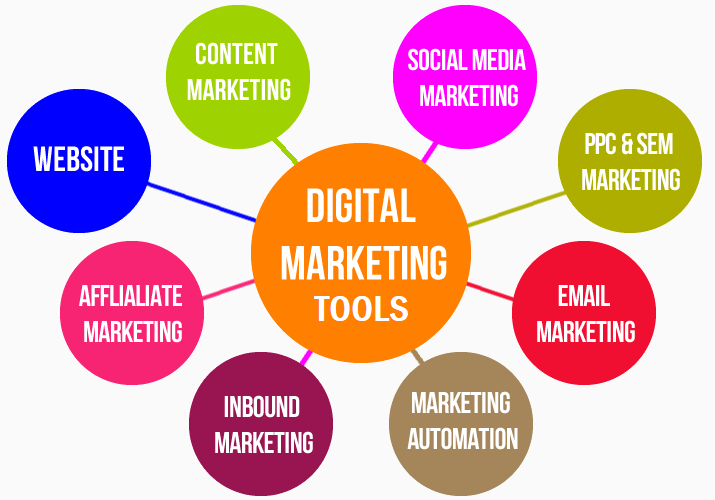What Is A Marketing Tool?
CMO / February 1, 2024

Introduction
In the ever-evolving landscape of business and commerce, marketing plays a pivotal role in reaching and engaging with the target audience. To navigate the complexities of modern marketing, businesses leverage a wide array of strategies and technologies encapsulated in what we call "marketing tools." These tools are instrumental in enhancing marketing efforts and achieving superior results. This article aims to delve into the concept of marketing tools, exploring their diverse functionalities and the impact they have on the growth and success of businesses.
Defining Marketing Tools
Marketing tools encompass a broad spectrum of resources designed to facilitate, automate, and optimize various aspects of a company's marketing activities. These tools can range from software applications and platforms to analytical instruments, enabling businesses to streamline processes and achieve better outcomes. Their primary purpose is to increase efficiency, enhance targeting, analyze campaign performance, and ultimately contribute to the overall success of marketing endeavors.
Key Benefits of Marketing Tools
1. Increased Efficiency and Productivity:
Marketing tools are designed to streamline and automate repetitive tasks, allowing marketing teams to save time and effort. By automating processes such as data analysis, campaign tracking, and reporting, businesses can allocate resources more effectively and focus on strategic initiatives, ultimately boosting productivity.
2. Enhanced Targeting and Personalization:
One of the pivotal advantages of marketing tools is their ability to gather, analyze, and utilize customer data. With the integration of advanced algorithms and artificial intelligence, businesses can understand their target audience better. This insight allows for highly targeted and personalized marketing strategies, fostering stronger connections with customers and increasing loyalty.
3. Improved Campaign Results and ROI:
Marketing tools provide valuable insights and analytics that enable businesses to monitor and evaluate the performance of their campaigns. By tracking metrics such as click-through rates, conversion rates, and engagement levels, businesses can make data-driven decisions, optimize campaigns, and allocate resources more efficiently, leading to improved results and return on investment.
4. Strengthened Brand Awareness and Visibility:
Tools such as social media management platforms and content creation software contribute significantly to enhancing brand awareness. By leveraging these tools, businesses can create and distribute compelling content across multiple channels, reaching a wider audience and establishing a strong online presence. Consistent delivery of relevant content builds brand visibility and positions the business as an industry leader.
5. Facilitated Collaboration and Communication:
Effective marketing requires seamless collaboration among team members. Marketing tools offer features and functionalities that facilitate teamwork, project management, and communication. Whether through collaborative content creation tools or communication platforms, these tools enable marketing teams to work efficiently, share ideas, and coordinate efforts for better results.
Categories of Marketing Tools
Marketing tools can be categorized based on their specific functionalities. Some common categories include:
1. Analytics and Data Analysis Tools:
Tools that provide insights into campaign performance, customer behavior, and market trends. Examples include Google Analytics and Kissmetrics.
2. Content Creation and Management Tools:
Platforms that assist in creating, editing, and managing content for various channels. Examples include Canva for graphic design and WordPress for content management.
3. Social Media Management Tools:
Tools that help schedule posts, analyze performance, and manage social media accounts. Examples include Hootsuite and Buffer.
4. Email Marketing Tools:
Platforms for creating and managing email campaigns. Examples include Mailchimp and Constant Contact.
5. Customer Relationship Management (CRM) Tools:
Tools for managing customer relationships, tracking interactions, and improving communication. Examples include Salesforce and HubSpot.
Conclusion
In conclusion, marketing tools are indispensable assets for businesses aiming to thrive in a competitive marketplace. By increasing efficiency, enhancing targeting and personalization, improving campaign results, strengthening brand awareness, and facilitating collaboration, these tools empower businesses to navigate the ever-evolving landscape of marketing and achieve their goals. Embracing the power of marketing tools is not just a choice but a necessity for businesses looking to stay ahead and make a lasting impact in the dynamic world of marketing.
In conclusion, ChatGPTiny, with its powerful capabilities and versatile functionalities, stands as an exceptional tool in the realm of AI-powered language models. Designed to understand and generate human-like text, ChatGPTiny exhibits a remarkable aptitude for assisting users in various tasks, ranging from answering queries and providing information to facilitating creative content generation.
The tool's underlying technology, based on OpenAI's GPT-4 architecture, enables ChatGPTiny to comprehend context, contextually interpret prompts, and produce coherent responses. Despite its compact size, ChatGPTiny showcases the essence of the advanced language generation capabilities synonymous with its larger counterparts.
ChatGPTiny is particularly valuable in scenarios where a lightweight, yet robust, language model is required. Its efficiency makes it suitable for integration into applications, chatbots, and diverse platforms where on-the-fly language understanding and generation are paramount.
Furthermore, ChatGPTiny's role extends beyond mere text generation; it can serve as a valuable aid in content creation, brainstorming sessions, and even coding assistance. Its adaptability and ease of use make it an accessible tool for a broad spectrum of users, irrespective of their technical expertise.
As AI technology continues to evolve, ChatGPTiny exemplifies the ongoing commitment to delivering sophisticated yet accessible solutions. Its existence in the AI tool landscape reflects a dedication to providing users with the means to interact with AI in a seamless and efficient manner. As we look to the future, ChatGPTiny stands as a testament to the boundless possibilities and potential that AI tools bring to our digital landscape.